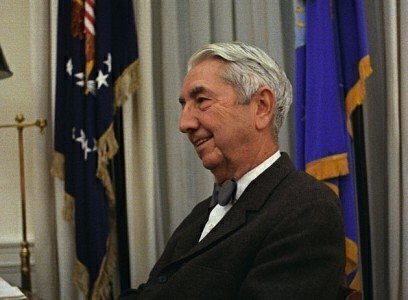Note: Landmark Cases, C-SPAN’s new series on historic Supreme Court decisions—produced in cooperation with the National Constitution Center—continues on Monday, Nov 30 at 9 p.m. ET. This week’s show features the Mapp illegal search decision.
On June 19, 1961, the Supreme Court settled a case about police using a fake warrant to search a home that set a huge precedent linking the Fourth and 14th Amendments.

What happens when the police obtain evidence from an illegal search or seizure? Before the Court’s decision in Mapp v. Ohio, the evidence could still be collected, but the police would be censured.
Police had received a tip that a bombing suspect might be located at Dollree Mapp’s home in Cleveland, Ohio. When police asked to search her home, Mapp refused unless the police produced a warrant.
The police used a piece of paper as a fake warrant and gained access to her home illegally. After searching the house without finding the bombing suspect, police discovered sexually explicit materials and arrested Mapp pursuant to state law that prohibited the possession of obscene materials.
Mapp was convicted of possessing obscene materials and faced up to seven years in prison before she appealed her case on the argument that she had a First Amendment right to possess the material.
The Supreme Court didn’t address her First Amendment argument but opted to settle the case on Fourth Amendment grounds.
The Court held that evidence collected from an unlawful search—as this search obviously had been—be excluded from trial. Justice Tom C. Clark’s majority opinion incorporated the Fourth Amendment’s protection of privacy using the Due Process Clause of the 14th Amendment, a very controversial move.
Before the Mapp decision, the Fourth Amendment’s search and seizure constitutional protection was limited to the actions of federal officers. In Mapp, the Court expanded the Fourth Amendment to the actions of state law enforcement officers using the 14th Amendment, so evidence illegally obtained by local officials could be excluded from state trials.
“Our holding that the exclusionary rule is an essential part of both the Fourth and Fourteenth Amendments is not only the logical dictate of prior cases, but it also makes very good sense. There is no war between the Constitution and common sense,” said Clark.







